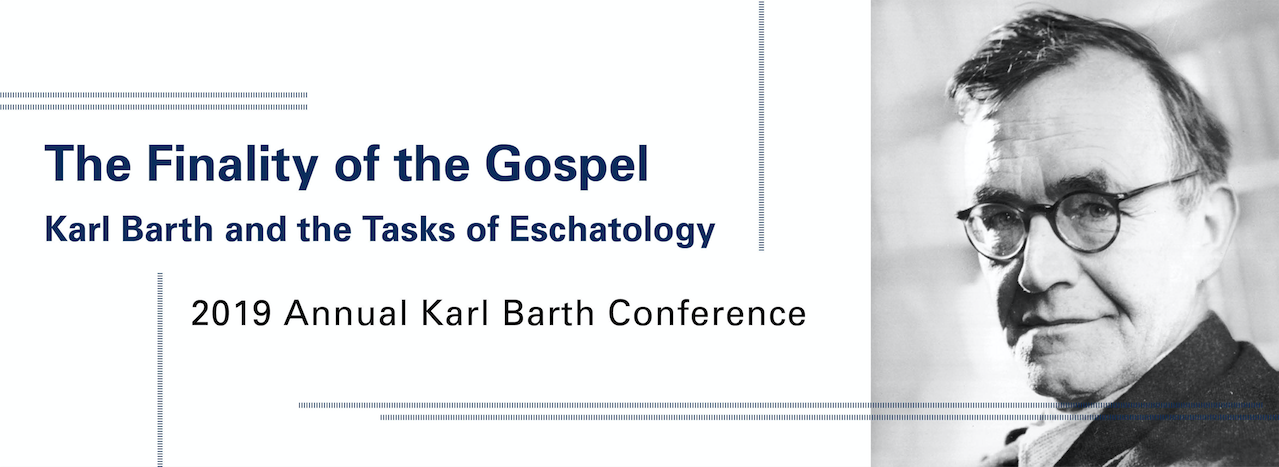
Date
Time
2019 Annual Karl Barth Conference

The 2019 Annual Karl Barth Conference will be hosted by the Center for Barth Studies from June 16-19, 2019 on the campus of Princeton Theological Seminary, Princeton, New Jersey. Fifty years from Barth’s own death and on the centenary of the publication of the Römerbrief, the conference takes as its theme, “The Finality of the Gospel: Karl Barth and the Tasks of Eschatology”. Our central purpose is to consider how fresh encounters with various aspects of Karl Barth’s dogmatic theology and biblical exegesis might stimulate, inform, shape, and challenge contemporary reflection on the range of eschatological themes in Christian theology. Plenary papers from leading theologians and biblical scholars from North America and Europe will be supplemented by the contributions of other scholars to be offered in two concurrent sessions during the conference.
Plenary Speakers include:
John Barclay, University of Durham
Douglas Campbell, Duke University
Christophe Chalamet, University of Geneva
Nancy Duff, Princeton Theological Seminary
Susan Eastman, Duke University
Beverly Gaventa, Baylor University
Karen Kilby, University of Durham
Grant Macaskill, University of Aberdeen
Kenneth Oakes, Notre Dame University
Christoph Schwöbel, University of St. Andrews
Christiane Tietz, University of Zurich
Philip G. Ziegler, University of Aberdeen
Registration
Cost
Regular Rate: $285 (Includes breakfast and lunch on Monday, Tuesday, and Wednesday, and all refreshments).
Students: $90 (Includes all refreshments. Fee does not include meals).
PTS Students, Faculty, Staff, and Administration: Free (Registration still required)
Opening Sunday evening banquet meal – separate charge: $30
Plenary Speakers
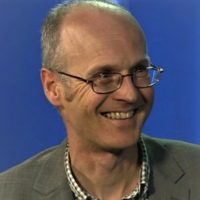 John Barclay
John Barclay
John Barclay is Lightfoot Professor of Divinity at the University of Durham where he teaches New Testament having previously been on the faculty of the University of Glasgow for many years. His research encompasses a wide-range of topics in New Testament exegesis, biblical theology and the history of early Christianity including its social history and relation to contemporary Judaism. He is currently serving as the President of the British New Testament Society. Among his recent publications are Paul and the Gift (2015), Pauline Churches and Diaspora Jews (2011), and Against Apion: Flavius Josephus Translation and Commentary (2007).
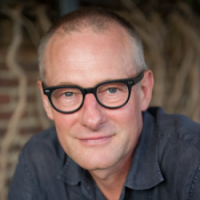 Douglas Campbell
Douglas Campbell
Douglas Campbell is Professor of New Testament at the Duke Divinity School. His research concentrates upon the life and theology of the apostle Paul with particular reference to soteriological models rooted in apocalyptic as against justification or salvation-history, and making use of disciplinary methods both ancient or modern. His recent publications include Paul: An Apostle’s Journey (2018), Framing Paul: An Epistolary Biography (2014), and The Deliverance of God: An Apocalyptic Rereading of Justification in Paul (2009).
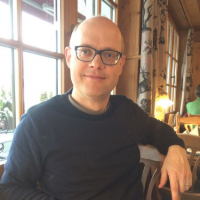 Christophe Chalamet
Christophe Chalamet
Christophe Chalamet is Professor of Systematic Theology at the University of Geneva. A member of the Center of Theological Inquiry (Princeton), for many years previously he taught theology as a member of the faculty of Fordham University. His research concerns topics in modern and contemporary Protestant theology, the doctrine of God, and christology. He is the author of Dialectical Theologians: Wilhelm Herrmann, Karl Barth, and Rudolf Bultmann (2005) and Revivalism and Social Christianity (2013).
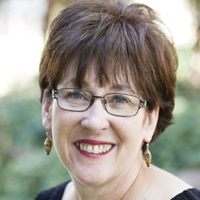 Nancy J. Duff
Nancy J. Duff
Nancy J. Duff is the Stephen Colwell Associate Professor of Christian Ethics at Princeton Theological Seminary. She earned her M.Div. from Union Presbyterian Seminary in Virginia and her Ph.D. from Union Theological Seminary in New York. An ordained Presbyterian minister, Nancy focuses her research on the theological foundations of Christian ethics. Writing from the Reformed tradition and informed by both Pauline apocalyptic and feminist concerns, she explores how theological claims identify the church’s responsibility in the world. She teaches courses in the theology and ethics of Dietrich Bonhoeffer, issues in biomedical ethics, issues in human sexuality, the doctrine of vocation, and the ethics of the Ten Commandments. She is the author of Humanization and the Politics of God: The Koinonia Ethics of Paul Lehmann(1992) and Making Faithful Decisions at the End of Life(2018).
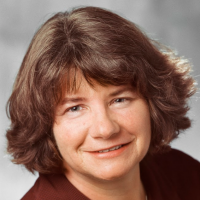 Susan Eastman
Susan Eastman
Susan Grove Eastman is Associate Research Professor of New Testament at the Duke Divinity School. Her research focuses on Paul’s letters in relationship to the formation and transformation of Christian identity. Among her most recent books, Paul and the Person: Reframing Paul’s Anthropology (2017)—a study of identity formation through a close reading of key Pauline texts in conversation with contemporary experimental psychology, philosophy, and neuroscience—and Recovering Paul’s Mother Tongue (2007). Ordained in the Episcopal Church, she has served churches from New York to Alaska.
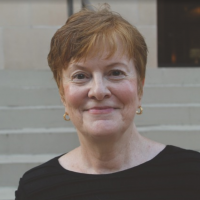 Beverly Gaventa
Beverly Gaventa
Beverly Gaventa is Distinguished Professor of New Testament Interpretation at Baylor University, as well as Helen H.P. Manson Professor Emerita of New Testament Literature and Exegesis at Princeton Theological Seminary. She has written on a wide variety of New Testament texts and issues. Among her recent books are When in Romans: An Invitation to Linger with the Gospel According to Paul (2016) and Our Mother Saint Paul(2007).In 2016, Dr. Gaventa was president of the Society of Biblical Literature. Dr. Gaventa is a ruling elder in the Presbyterian Church U.S.A. and a member of the First Presbyterian Church in Waco, Texas.
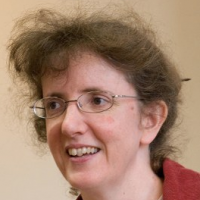 Karen Kilby
Karen Kilby
Karen Kilby is Bede Professor of Catholic Theology at the University of Durham University, having held previous posts at the Universities of Nottingham, Birmingham and St. Andrews. In addition to 20th century Catholic theology, her research interests embrace a range of themes in constructive theology, including in particular the doctrine of the Trinity, the place of mystery in Christian thought, and the problem of suffering and evil. In 2016-18 she served as the President of the Society for the Study of Theology (UK). Among her recent books are Balthasar: A Very Critical Introduction (2012), The SPCK Introduction of Karl Rahner (2007), and Karl Rahner: Theology and Philosophy (2004).
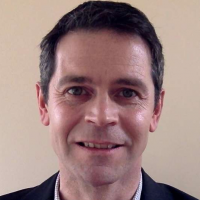 Grant Macaskill
Grant Macaskill
Grant Macaskill is Kirby Laing Professor of New Testament Exegesis at the University of Aberdeen, having previously held posts at the University of St Andrews. His research examines the New Testament as a coherent body of theological literature emerging from the diverse contexts of late Second Temple Judaism. He is currently investigating the place of persons with autism in Christian communities, and how the Bible might shape thought and practice with respect to this. His recent publications include The New Testament and Intellectual Humility (2019), Union with Christ (2013), and Revealed Wisdom and Inaugurated Eschatology in Ancient Judaism and Early Christianity (2007).
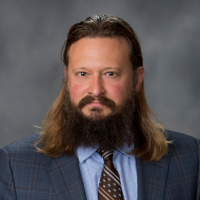 Kenneth Oakes
Kenneth Oakes
Kenneth Oakes is Assistant Professor of Systematic Theology at the University of Notre Dame. He is the author of Karl Barth on Theology and Philosophy (2012) and Reading Karl Barth: A Companion to Karl Barth’s Epistle to the Romans (2011), and he is also the editor of Christian Wisdom Meets Modernity (2016). His research concerns issues in modern Protestant thought as well as contemporary systematic and constructive theology. He has special interests in the theology of Karl Barth, theologies of creative retrieval, and theological appropriations of and engagements with modern and postmodern philosophy.
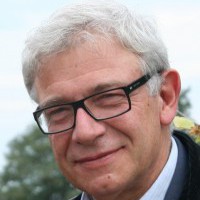 Christoph Schwöbel
Christoph Schwöbel
Christoph Schwöbel holds the 1643 Chair in Divinity as Professor of Systematic Theology at the University of St. Andrews. He has previously held posts for many years at the Universities of Tübingen and Heidelberg. Among his recent books are counted Gott in Beziehung: Studien Zur Dogmatik (2018), Die Religion Des Zauberers: Theologisches in Den Grossen Romanen Thomas Mann (2008), and Christlicher Glaube Im Pluralismus: Studien Zu Einer Theologie Der Kultur (2003). Within the wide field of modern Protestant theology, his research has focused in particular on ecumenical questions, the doctrines of God, Christology and the church, and more recently on Christian-Muslim dialogue.
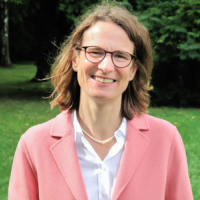 Christiane Tietz
Christiane Tietz
Christiane Tietz is Professor for Systematic Theology at the University of Zurich where she oversees the Institute of Hermeneutics and Philosophy of Religion. She was the former president of the German language section of the International Bonhoeffer Society, and her main areas of research include Martin Luther, Dietrich Bonhoeffer, Karl Barth, classical doctrinal questions, and hermeneutics. Her most recent publications include Theologian of Resistance: The Life and Thought of Dietrich Bonhoeffer (2016), and Martin Luther im interkulturellen Kontext (2008). Last fall, she published a new biography on Karl Barth entitled Karl Barth. Ein Leben im Widerspruch (2018).
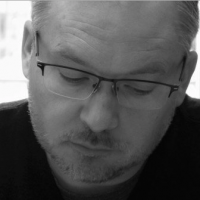 Philip Ziegler
Philip Ziegler
Philip Ziegler is Professor of Christian Dogmatics at the University of Aberdeen. Educated at the Royal Military College of Canada, the University of Toronto, the University of St Michael’s College, Regis College, and Emmanuel College of Victoria University, his studies is systematic and historical theology, ecumenics, and the philosophy of religion culminated in a Postdoctoral Research Fellowship at Princeton University’s Center for the Study of Religion. After teaching for several year at the Atlantic School of Theology in Halifax, Canada, he joined the faculty of the University of Aberdeen in Divinity & Religious Studies in 2006. He is the author of Doing Theology When God is Forgotten: The Theological Achievement of Wolf Krötke (2007) and Militant Grace: The Apocalyptic Turn and the Future of Christian Theology (2018). He has edited and co-edited a number of works in including The Providence of God, Explorations in Christian Theology and Ethics: Essays in Conversation with Paul L. Lehmann, Christ, Church and World: New Studies in Bonhoeffer’s Theology and Ethics, and Eternal God, Eternal Life: Theological Investigations into the Concept of Immortality. Phil is an Associate Editor of the Journal of Reformed Theology and also serves, together with Ian MacFarland and Ivor Davidson, as series editor of T&T Clark Studies in Systematic Theology. Phil is a General Secretary of the Karl Barth Society of North America, and serves on the executive committee of the English language section of the International Bonhoeffer Society and the steering group of the ‘Bonhoeffer and Social Analysis’ section of the AAR. An ordained minister of the United Church of Canada, Phil is formally associated with the Kirk Session of the Cathedral Church of St. Machar in Aberdeen.
Concurrent Speakers
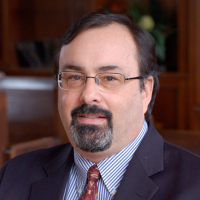 PETER ANDERS
PETER ANDERS
Peter Anders is an independent scholar with graduate degrees in theology and religious studies from Wheaton College (MA), Yale Divinity School (MAR), and the University of Oxford (DPhil). He was also Visiting Research Fellow in Modern Intellectual History at Harvard University. Peter has taught theology and religious studies at a number of Christian colleges and seminaries across the country. Among Peter’s publications is “Nonviolence and the Immanent Logic of Christian Trinitarian Monotheism,” in Violence in Modern Society: Monotheism Guilty?, edited by Alejandra Vanney (Georg Olms, 2013). Peter’s current book project is an intellectual history of Barth’s recovery of Luther’s theologia crucis as a modern theological corrective.
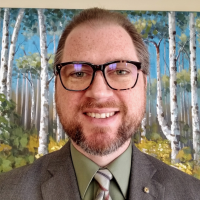 MATTHEW FROST
MATTHEW FROST
Matthew Frost is a doctoral student in systematic theology and ethics at the Lutheran School of Theology at Chicago. His dissertation work seeks to widen our basis for understanding Barth’s soteriology by moving forward from Barth’s mature doctrine of election into the threefold economy grounded in it. His other research interests include comparative theology and the development of the Pauline canon. Matthew has facilitated classroom and community dialogues with the Zygon Center for Religion and Science, conversations that inevitably turn on issues of ethics in contemporary society, and can be found writing at Speaking Freely.
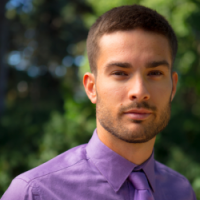 STEVEN HARRIS
STEVEN HARRIS
Steven Edward Harris (PhD, Durham) is Part-time Instructor in Religion and Theology at Redeemer University College and Research Scholar at Wycliffe College, University of Toronto. He works across systematic theology and the history of biblical interpretation, with a focus on retrieving premodern exegetical insights for contemporary theology. He is the author of God and the Teaching of Theology: Divine Pedagogy in 1 Corinthians 1-4 (UNDP, 2019) and works at present on the doctrine of resurrection.
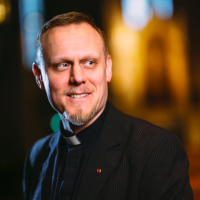 TIMO HELENIUS
TIMO HELENIUS
Dr. Timo Helenius received his PhD in philosophy from Boston College in 2013, and he has been a Visiting Scholar at the Department of Religious Studies at Brown University since 2016. Helenius has taught philosophy and ethics at Boston College, Mount Ida College, and—most recently—at the University of New Brunswick Saint John as a Visiting Assistant Professor of Philosophy. Helenius’s research has focused on contemporary Continental philosophy in general and in Paul Ricoeur in particular. His work, Ricoeur, Culture, and Recognition: A Hermeneutic of Cultural Subjectivity, was published by Lexington Books (Rowman & Littlefield) in 2016. Helenius is currently working on another book-length project that focuses on the implied phenomenology of religious expressivity.
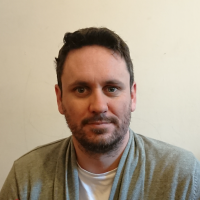 DECLAN KELLY
DECLAN KELLY
Declan Kelly is currently a PhD student in Systematic Theology at the University of Aberdeen. Swapping the west coast of Ireland for the east coast of Scotland, he arrived in Aberdeen in 2015 where he continues to reside with his wife Raquel and their daughter Alva. His research has focused on reading Karl Barth as an apocalyptic theologian, looking in particular at the “three-agent drama” that governs his soteriology. Other research interests include the doctrine of God, theological ethics, and theological exegesis. Beyond the world of theology, he enjoys films, sports, and has a particular fondness for a good card game.
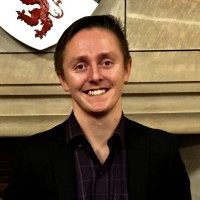 MITCHELL MALLARY
MITCHELL MALLARY
Mitchell Mallary is a second year Ph.D. candidate in the School of Divinity at the University of St Andrews, studying under the tutelage of Professor N. T. Wright and Dr. A. B. Torrance. He previously received a Bachelor’s degree (Honors) from Judson University, where he majored in both Christian Theology and Biblical Studies. Currently, he is serving as a research assistant to Professor Wright and planning a forthcoming interdisciplinary conference on Christology.
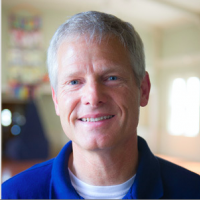 JEFF MCSWAIN
JEFF MCSWAIN
Jeff McSwain is the Founder and current Director of Ministry Formation at Reality Ministries, Inc, in Durham, NC (founded 2007). The non-profit’s mission is “creating opportunities for teens and adults with and without developmental disabilities to experience belonging, kinship and the life-changing Reality of Christ’s love.” Jeff has two degrees from St. Andrews, an MLitt (2002) and a PhD (2015). He has published various articles and two books, Movements of Grace: The Dynamic Christo-Realism of Barth, Bonhoeffer and the Torrances (2010), and most recently ‘Simul’ Sanctification: Barth’s Hidden Vision for Human Transformation (2018). Keen to stay at the interface between systematic theology and practical ministry, in the last ten years Jeff and his wife Susan have helped plant a new church, CityWell, and launch the North Street Neighborhood, an intentional community (17 houses) near downtown Durham where people of various abilities share life together.
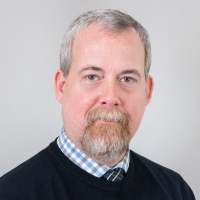 R. DAVID NELSON
R. DAVID NELSON
R. David Nelson (PhD, University of Aberdeen) is senior acquisitions editor for Baker Academic and Brazos Press. He is the author or editor of several books, including Jüngel—A Guide for the Perplexed (Bloomsbury T&T Clark, 2019), Karl Barth, The Epistle to the Ephesians (Baker Academic, 2017), and, with Darren Sarisky and Justin Stratis (eds.), Theological Theology: Essays in Honour of John Webster (Bloomsbury T&T Clark, 2015).
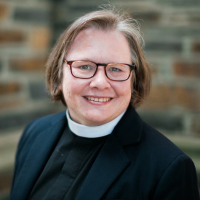 KARA SLADE
KARA SLADE
The Rev. Dr. Kara Slade serves as Associate Chaplain at the Episcopal chaplaincy to Princeton University and Associate Rector at Trinity Church in Princeton. She is also a member of the faculty at Princeton Theological Seminary, where she teaches Anglican Studies and advises the Episcopal/Anglican student cohort. A native of Pensacola, Florida and lifelong Southerner, Kara received her PhD in Christian theology and ethics at Duke University in 2018, with research interests that include Karl Barth, Søren Kierkegaard, and the ethics of science, technology, and medicine. A former specialist in the dynamics of nonlinear and complex systems, she earned the BSE, MS, and PhD in mechanical engineering and materials science at the Duke Pratt School of Engineering (and served on the faculty there) before joining NASA as a research engineer. After leaving government service, she returned to Duke in 2009 as a student in the Divinity School, and stayed on for her second doctorate. She serves on the Committee for the Priesthood of the Diocese of New Jersey and the General Board of Examining Chaplains of the Episcopal Church, and is also the chair of the Society of Scholar-Priests.
 ADAM TIETJE
ADAM TIETJE
Adam Tietje is a ThD student in Theology and Ethics at Duke Divinity. He holds a MDiv from Princeton Seminary and DMin from Erskine Seminary. He served as an active duty Army chaplain for nine years, with a deployment to Afghanistan and assignments in combat arms, medical, and special operations units (decorations include the Bronze Star Medal, Purple Heart, and Ranger Tab). He is the author of Toward a Pastoral Theology of Holy Saturday: Providing Spiritual Care to War Wounded Souls (Wipf & Stock, 2018). He is currently working on projects that bring together ethical and pastoral conversations around moral injury.
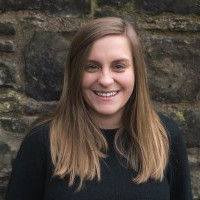 NICOLA WHYTE
NICOLA WHYTE
Nicola Whyte is a PhD student in Systematic Theology at Princeton Theological Seminary. She holds a Master of Arts in Theological Studies from Princeton Theological Seminary, and a Master of Arts (Honours) in Divinity from the University of Edinburgh, and has also spent time working within the Church of Scotland. Her research interests include the theologies of Karl Barth and Friedrich Schleiermacher, political theology, and feminist theology.
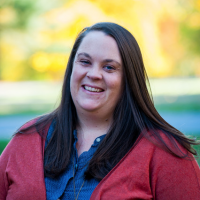 CHELSEA WILLIAMS
CHELSEA WILLIAMS
Chelsea Williams is a PhD candidate at Princeton Theological Seminary. Chelsea hails from Southern California, where she earned BA degrees in European History and Religious Studies at the University of California, San Diego. After also earning her MDiv from Princeton Theological Seminary, she spent time in New College at the University of Edinburgh and completed an MTh degree in Theology in History, writing a thesis on a missional reading of Karl Barth’s Epistle to the Romans. Her dissertation and current research interests are concerned with eschatology, particularly theological conceptions of the kingdom of God, and ecclesiology, especially under the aspect of missional theology and the doctrine of grace.
Schedule
Sunday, June 16th, 2019
4:00 – 5:30 PM – Registration – Erdman Center
6:00 – 7:30 PM – Opening Banquet – Mackay Dining Hall
7:30 – 9:00 PM – Lecture 1 – Mackay Auditorium
- Christoph Schwöbel :: The Beginning of the End or the End of the Beginning? Barth’s Eschatology as a Guide to the Perplexed
Monday, June 17th, 2019
7:00 – 9:00 AM – Registration – Mackay Auditorium Foyer
8:00 – 9:00 AM – Breakfast – Mackay Dining Hall
9:00 – 10:00 AM – Lecture 2 – Mackay Auditorium
- Grant Macaskill :: The Idolatrous Self and the Eikon: The Possibility of Worship
10:15 – 10:45 AM – Break with coffee – Mackay Auditorium Foyer
10:45 – 11:45 AM – Lecture 3 – Mackay Auditorium
- Kenneth Oakes :: Eschatology in the Time of Expectation
Noon – 1:00 PM – Lunch – Mackay Dining Hall
1:15 – 2:15 PM – Lecture 4 – Mackay Auditorium
- Douglas Campbell :: Paul’s Account of the Future: A Case Study in Pauline Dogmatics
2:30 – 3:00 – Break with coffee and refreshments – Mackay Auditorium Foyer
3:00 – 4:00 – Lecture 5 – Mackay Auditorium
- Christiane Tietz :: ‘Standing on the Boundary Where the Now and the Yet Then Touch Each Other’: Barth on Theodicy and Eschatology
4:15 – 5:00 – Concurrent Papers – Session I
- Peter Anders – Theron Room (Library): “The Cruciform Promise of the Gospel: Theologia Crucis and the Resurrection of the Dead in Karl Barth’s Earlier Theology”
- Steven Harris – Library Room 1010: “First Corinthians 15 in the Century before Barth: Eschatology without Content?”
- Timo Helenius – Clarke Lounge (Erdman Center): “What I Am Not”: Barth’s Negative Phenomenology of Eternity
- Declan Kelly – Art Studio (Erdman Center): “Love in a Time of Apocalypse: Karl Barth’s Interpretation of 1 Corinthians 13”
- Jeff McSwain – Adams House (Living Room): “Species of Origen? Barth’s Refusal of a “self-enclosed middle” between Creation and the Eschaton”
- Nicola Whyte – Cooper Room (Erdman Center)
5:00 – 7:30 – Open Dinner in Princeton
7:30 – 8:30 – Lecture 6 – Mackay Auditorium
- John Barclay :: The Day is at Hand: Barth’s Interpretation of Pauline Eschatology
Tuesday, June 18th, 2019
8:00 – 9:00 AM – Breakfast – Mackay Dining Hall
9:00 – 10:00 AM – Lecture 7 – Mackay Auditorium
- Beverly Gaventa :: The Finality of the Gospel: Barth’s Romerbrief on Romans 9-11
10:15 – 10:45 AM – Break with coffee – Mackay Auditorium Foyer
10:45 – 11:45 AM – Lecture 8 – Mackay Auditorium
- Christophe Chalamet :: The Redemption of This World: On the Direction of Eschatology
Noon – 1:00 PM – Lunch – Mackay Dining Hall
1:15 – 2:15 PM – Lecture 9 – Mackay Auditorium
- Karen Kilby :: Death: A Hesitation
2:30 – 3:00 – Break with coffee and refreshments – Mackay Auditorium Foyer
3:00 – 4:00 – Lecture 10 – Mackay Auditorium
- Nancy Duff :: The Ethics of Resisting and Accepting Death in Karl Barth’s Theology
4:15 – 5:00 – Concurrent Papers – Session II
- Matthew Frost – Art Studio (Erdman Center): “Escaping the Outcomes of History: Barth’s Redesign of Eschatology from Protology, Forward”
- Mitchell Mallary – Theron Room (Library): “The Secularity of Revelation and the Task of History: Karl Barth Against the Theological Interpretation of Scripture”
- R. David Nelson – Library Room 1010: “Humanity at the Crossroads of Old and New: Anthropology and Eschatology in Barth’s Exegesis of Romans 5”
- Kara Slade – Cooper Room (Erdman Center): “Time and the Political Theology of Progress”
- Adam Tietje – Adams House (Living Room): “‘Be What You Are’: Barth’s Eschatological Account of Conscience.”
- Chelsea Williams – Clarke Lounge (Erdman Center): “The World Is Wide Enough: The Kingdom of God and Barth’s Critique of Pietism Today”
Open Dinner in Princeton
Wednesday, June 19th, 2019
8:00 – 9:00 AM – Breakfast – Mackay Dining Hall
9:00 – 10:00 AM – Lecture 11 – Mackay Auditorium
- Susan Eastman :: The Custody of Hope: Christian Existence in The Resurrection of the Dead
10:00 – 11:00 AM – Break with coffee – Check out from the Erdman Center by 11 AM
11:00 – 12:00 PM – Lecture 12 – Mackay Auditorium
- Philip G. Ziegler :: The First and Final ‘No’: The Finality of the Gospel and the Old Enemy
Noon – 1:00 PM – Lunch – Mackay Dining Hall
Call for Applications
Fifty years from Barth’s own death and one-hundred years from the publication of the Römerbrief, the conference examines how fresh encounters with Karl Barth’s dogmatic theology and biblical exegesis might stimulate, inform, shape, and challenge contemporary reflection on the range of eschatological themes in Christian theology.
Those currently enrolled in a doctoral program or with completed doctorates are invited to submit paper proposals relevant to this year’s theme. We invite papers which draw Karl Barth’s life and work into constructive conversation concerning eschatological themes, perhaps focusing on the interpretation of key scriptural texts, or questions attending to key eschatological motifs: the matter of time and eternity, the Kingdom of God, death, judgment, resurrection, heaven and hell, apocalypse, theodicy, trauma, and the body (theologies of disability, race, sexuality, and gender). We especially encourage women, people of color, international students, and new voices in the Barth discussion to submit proposals.
Abstracts not exceeding 300 words should be sent to barth.center@ptsem.edu no later than 15th January 2019. Papers should be no more than 3,500 words in order to be delivered in 30 minutes and allow 15-20 minutes for Q&A. Please include your current academic standing with submissions.
Accepted applicants will receive free registration, meals, and lodging.
Lodging
Lodging at Princeton Seminary’s Erdman Center is sold out.
The following lodging options are still available:
Dorm rooms are available for reservation at Princeton Seminary’s Alexander Hall. These dormatory style rooms include an XL twin bed, linens, a nightstand, dresser, desk with chair, and a bookshelf. All rooms have Wi-Fi. Recently renovated bathrooms on each floor are shared by all rooms on a hallway. Dorm rooms are $50 per night per room. Call the front desk of the Erdman Center to reserve a dorm room: (609) 497-7990
Hotel rooms have also been reserved in a room block at the nearby DoubleTree by Hilton Princeton. Please use the following information when booking a room:
- Address: 4355 US Route 1 at Ridge Road Princeton, NJ 08540
- Phone Number: (609) 452-2400
- Fax Number: (609) 452-2494
- Booking Link: https://secure3.hilton.com/en_US/dt/reservation/book.htm?execution=e2s1
- Hotel: DoubleTree by Hilton Princeton
- Group Name: Barth Conference 2019
- Arrival Date: 16-Jun-2019
- Departure Date: 19-Jun-2019
PLEASE NOTE: You must reserve your room at the DoubleTree by 5/24/2019. Any rooms not booked by this date will be released into inventory for general sale, and if available, they will be sold at the market rate.
Maps & Directions
By Air
From Newark Liberty International Airport
The Olympic Airporter shuttle service takes you to the Nassau Inn in Princeton; call for schedule and reservations: 800.822.9797 (within the United States) or 732.938.6666 (outside the United States), or visit www.olympicairporter.com
The AirTrain takes you from all airport terminals to the Newark Liberty International Airport Train Station. Take New Jersey Transit southbound (Northeast Corridor Line) trains to Princeton Junction. From Princeton Junction take the train to Princeton Station.
From Philadelphia International Airport
Take the R1 High Speed Rail Line (entrance on pedestrian bridges and commercial roadway), limousine service (The Olympic Airporter; call for reservations: 800.822.9797 within the United States or 732.938.6666 outside the United States, or visit www.olympicairporter.com), or local taxi service to 30th Street Station in Philadelphia, where you can purchase a SEPTA/New Jersey Transit ticket to take a SEPTA train to Trenton and a New Jersey Transit train to Princeton Junction. From Princeton Junction take the train to Princeton Station.
By Bus
From Port Authority Bus Terminal in New York City (41st Street and 8th Avenue)
Purchase a Suburban Transit bus ticket to Princeton at windows 16 through 19 on the first floor. Board the bus on the third floor (fourth level) at gates 420 through 422. The bus leaves every half hour between 6:00 a.m. and 11:00 p.m. on weekdays and between 9:00 a.m. and 11:00 p.m. on weekends, and every half hour on the hour until 1:00 a.m. The trip is one and one-half hours. Ask the driver to let you off at the end of Nassau Street where it meets Mercer Street and Route 206 in Princeton, and walk to the Seminary.
By Train
From New York City (and north) and Philadelphia (and south)
New Jersey Transit services Princeton from the north (New York City, Newark), with connecting service from the south (Trenton, Philadelphia, Baltimore, Washington DC). Amtrak trains stop in Trenton, and some at Princeton Junction.
By Car
From the North/New York City
Take the New Jersey Turnpike South to Exit 9 (New Brunswick). After the tollbooths, bear right onto the ramp for Route 18 North. Shortly after getting onto Route 18 North the road will fork; stay to the left of the fork, in the right lane. Bear right onto this exit for Route 1 South/Trenton. Follow Route 1 South to Alexander Road (Princeton). Turn right onto Alexander Road and continue to the entrance of Princeton Seminary, which is the first left turn after College Road (Alexander Road will be Alexander Street at this point).
From the West
Take I-78 East into New Jersey. Exit onto I-287 South toward Somerville. Follow signs for Routes 202/206 South. Travel south on 202 for a short distance and then follow signs for Route 206 South. You will go around a traffic circle. Continue south on Route 206 for about eighteen miles to Nassau Street (Route 27) in the center of Princeton. Turn left onto Nassau Street and the first right onto Mercer Street and continue to the main entrance of Princeton Seminary, which will be on your left.
From the South
From southern New Jersey take I-295 North (becomes I-95 South) to the “Princeton Pike North” exit and continue on Princeton Pike for approximately five miles. Immediately after passing Library Place (on the left), the main entrance to the campus will be on your right.
From the East
Take I-95 West toward Trenton to the exit for I-295 North (becomes I-95 South) to the “Princeton Pike North” exit and continue on Princeton Pike for approximately five miles. Immediately after passing Library Place (on the left), the main entrance to the campus will be on your right.
From Philadelphia
Take I-95 North into New Jersey and exit at “Princeton Pike North” and continue on Princeton Pike for approximately five miles. Immediately after passing Library Place (on the left), the main entrance to the campus will be on your right.
Contact
If you have any questions or concerns, email us at barth.center@ptsem.edu or call us at 609-524-1981.
Please allow at least three business days for an email response.

